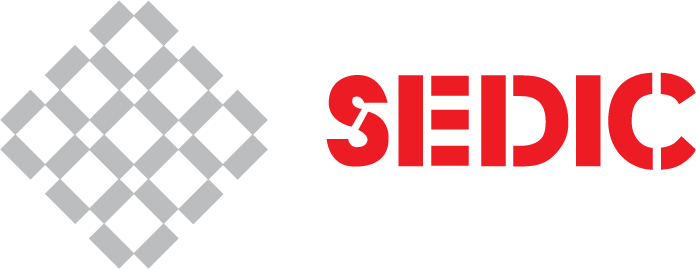We are speaking with Damilare Oyedele, co-founder of Library Aid Africa, a not-for-profit organization dedicated to championing the need for school and community libraries in Africa as a vehicle for sustainable development and a better quality of life for all.
(Archivoz) What was your inspiration for Library Aid Africa?
(D.O.) As a young boy in my community, I did not have access to a library as the schools I attended never had one. As a matter of fact, I never knew anything called “library.” This denied me access to literature, the ability to use information independently, my reading culture was poor and I could not communicate fluently. This presented me with numerous challenges as I failed the national examination twice consecutively due to my poor reading skills.
My first real encounter with a library came upon my admission into an institution of higher learning to study Library and Information Science. I soon cultivated the habit of studying in the confines of a library, and I began to explore the merits a library had to offer. It was an amazing experience for me because, for the first time in my life, I had independent access to information and other intellectual property. This inspired me to create a platform that would facilitate equitable access to information for all.
My journey began at the age of 19, when I was still in school. I took it as my personal responsibility to do something about the dearth of libraries in Nigeria, with a view to expanding this vision to other African countries. I started by writing articles for various Nigerian daily newspapers, and after that I went into broadcasting with the same vision to use television to educate people about the importance of libraries. Fortunately for me, I was granted an audience via a television series named “Library and You.” It featured documentaries and interviews with authors, librarians, and publishers discussing feasible solutions for resuscitation of libraries. This series lasted for three consecutive quarters in 2016.
I came to realize that the problems Africa faces have to do with the lack of or inadequate access to information. Information and knowledge empowers the mind of every individual. I realised that community engagement and initiatives are sacrosanct. This led to the establishment of Library Aid Africa (formerly known as ‘Library and You’), a not-for-profit organization with the mission to revamp libraries in Africa to increase their societal impact. The organization focuses on access to information through pragmatic initiatives, designed to create awareness and resuscitate libraries in schools and communities.
(Archivoz) How many countries participate in Library Aid Africa, and which ones are they?
(D.O.) Library Aid Africa operates from Nigeria, with partners and volunteer presence in over 10 African countries: Ghana, Namibia, Uganda, South Africa, Tanzania, Kenya, Togo, Republic of Benin, Mali, Zimbabwe, Malawi, Liberia, and Rwanda. Over the years, we have been able to build committed partners and volunteers in various African regions who share the same vision with us. Our vision is to resuscitate libraries in schools and communities.
(Archivoz) You have underlined the importance of a grassroots effort. Why is this so important?
(D.O.) We realised that grassroots efforts in rural areas and within communities are essential, as these communities needs development in many dimensions: literacy development, quality education, zero hunger, good health and wellbeing, sustainable cities and communities, and gender equality, among many others. To achieve these, informed literate citizens are essential. Why? An informed mind is empowered, with the knowledge and skills to make informed choices that improve quality of life and contribute meaningfully to the decision-making processes of government. We also seek to mobilize citizens to drive advocacy for library development in their local communities, targeting community integration and promotion of local content and thereby realizing access to information for all.
(Archivoz) Tell us about some of your current and ongoing projects. What is topmost on your action list right now?
(D.O.) One of our topmost concerns is how libraries drive progress across the SDGs and AU Agenda 2063. These sustainable development plans are essential for Africa’s development, and access to information must play an important role if we are to achieve their targets. To this end, we are working with our partners across Africa to drive advocacy, projects and initiatives that will facilitate equitable access to information for all. These projects center on creating local impacts through library set-up and management in African communities. An informed literate mind is empowered to contribute to the attainment of these sustainable development plans. Libraries are eminent beyond comparison in achieving this because they create platforms that provides equitable access to information for all in print and electronic media.
In the past, we have partnered with the National Library of Nigeria to organize a Social Media Library Advocacy Awareness Program, an online sensitization that focused on educating the online community on how libraries drive progress across the SDGs.
More recently, Worldreader, in collaboration with Library Aid Africa, launched its Inspire Us Collection, a collection of digital books leveraging mobile technology and literature to redefine gender stereotypes and boost women’s and girls’ empowerment and assertiveness. The collection, encompassing fiction and non-fiction, include stories that clearly articulate women as protagonists, change agents, and leaders of the future.
Of course I must also mention our #libraryselfie series. This is an online initiative designed to create awareness about the importance of libraries as spaces for reading and learning. We had #libraryselfie2018 last year in Nigeria and we just concluded #libraryselfie2019 across six African countries: Nigeria, Ghana, Namibia, Kenya, Tanzania, and South Africa. We have 18 winners across those six countries, who we will engage as library champions who will drive advocacy for improved library development and usage in their local communities.
(Archivoz) How many public libraries are there in Nigeria right now? How many would you like to see, if all goes according to your vision?
(D.O.) According to the IFLA World Library Map, there are 290 public libraries in Nigeria. A country with a population of over 200 million people! It is apparent that the number of public libraries in Nigeria is quite low, and the numbers are similar across other African countries where we operate. As an organisation, our top priority is to ensure citizens’ access to information. Part of our strategy is to engage relevant stakeholders in the educational and library sectors. Also, through citizen engagement, we plan to set up community centres that will serve as platforms where community members can study, access information both in print and electronic formats, and share experience and knowledge.
(Archivoz) The United Nations Sustainable Development Goals are a big part of the work you are doing, as is the African Union Agenda 2063. In what ways can the creation of school and public libraries forward these goals?
(D.O.) The Sustainable Development Goals and Agenda 2063 were designed to make the world we live in a better place for the current generation and generations to come. It is our collective responsibility as citizens to commit ourselves to achieving their targets. The role of libraries in achieving these goals cannot be overemphasized, be they school libraries or public. Why? It’s all about access to information.
For us to achieve the SDGs and Agenda 2063, we must commit to developing informed literate citizens. Libraries by nature carry the responsibility to provide equitable access to information for all. This information empowers people with the skills and knowledge needed to function and participate in creating a sustainable society, to drive progress towards achieving sustainable development, and to co-create sustainable solutions.
Partnerships and collaboration are two of our major thrusts. We work with credible partners across Africa towards achieving these goals. For example, we have the Library Impact Project. This project seeks to facilitate access to information in support of the Sustainable Development Goals and African Union Agenda 2063. It is scheduled for implementation in eight African countries, with the view to achieving 16 outputs in each. The project has three major focuses: access to information, increased skills and capacity building, and advocacy.
(Archivoz) Of all the SDGs, which ones do you most wish to address through the Library Aid Africa initiative?
(D.O.) As an organisation that focuses on equitable access to information for all, our work addresses all the SDGs and Agenda 2063. Access to information is imperative across all the goals. Quality education requires access to relevant information resources for learning and research. Zero poverty requires access to information that equips people with skills that enable productivity. Zero hunger requires access to information to educate farmers and citizens on crop types, seasons, weather forecasting, and new farming techniques and mechanisms. Gender equality demands access to information to empower young girls and women. Access to information is the heart of any sustainable development effort, and it is therefore imperative that relevant stakeholders invest more in library development in African communities.
(Archivoz) Where can our readers learn more about what you are doing?
(D.O.) You can learn more about what we do at Library Aid Africa on our future website and on our social media platforms: Twitter, Facebook, and Instagram. You can also contact us via email, at libraryaidafrica@gmail.com.
Header image: Library Aid Africa logo used by permission of Library Aid Africa and Damilare Oyedele.
Interview conducted by: Vance Woods



